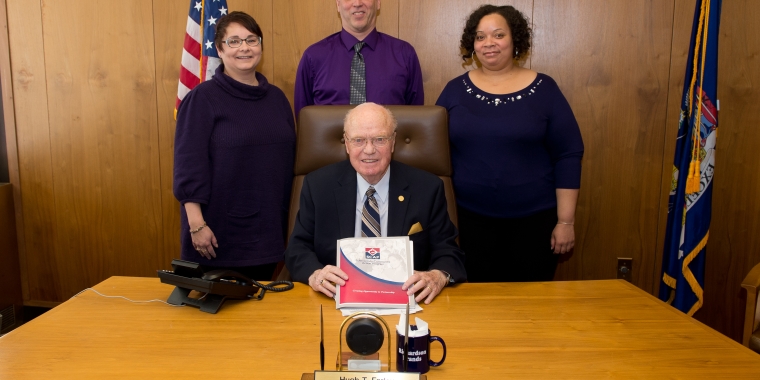
SEN. FARLEY REPORTS SENATE PASSES BILL TO PROTECT SCHOOL CHILDREN WITH SEVERE ALLERGIES
State Senator Hugh T. Farley (R, C, I – Schenectady) reported that he and his colleagues in the New York State Senate recently passed legislation (S7262A) that authorizes schools to have and administer the life saving medicine, epinephrine, when a student has a severe allergic reaction.
According to Food Allergy Education and Research, food allergies affect one in every 13 children in the United States -- estimated to be two children per classroom. Allergic reactions can range from mild skin rashes to severe anaphylaxis -- a full-body and potentially life-threatening allergic reaction that can stop respiration and heartbeat within seconds. Among these children who have food allergies, 40 percent have already experienced severe allergic reactions, including anaphylaxis.
The first line of defense for anaphylaxis is epinephrine, which often comes in the form of an auto-injector or widely used EpiPen. The timely administration of epinephrine to a child suffering from a life-threatening anaphylactic reaction is crucial.
A New York Times article from September 7, 2012, noted that in Massachusetts, where schools are permitted to administer epinephrine to any student, 25 percent of students who had been given the drug for a reaction did not previously know they had an allergy.
Currently, New York State does not permit schools to administer epinephrine to students unless school authorities know about the allergy and have a doctor's prescription on file. This legislation would permit school employees who have completed the appropriate training, to administer epinephrine auto-injectors to any student or staff member in an emergency.
The bill has been sent to the Assembly.



